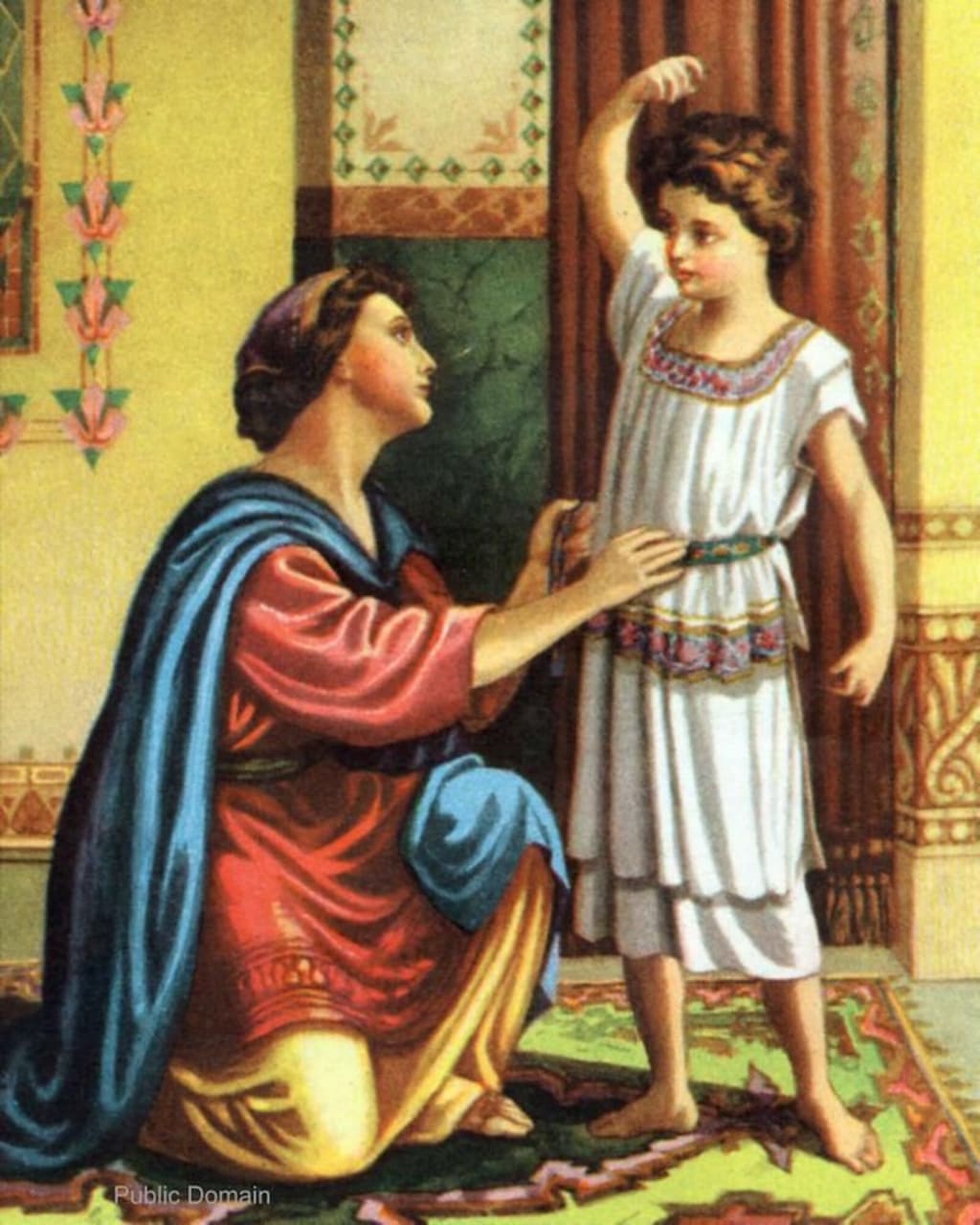From Barren to Blessing:
Hannah’s Faith and Resilience

Hannah’s story is about her unwavering faith in God, being bullied, barren, and then having a child. Hannah (11th century BCE) was the mother of the prophet Samuel. According to Easton’s Bible Dictionary, Hannah means favor and grace. Hannah is of Hebrew origin. After years of being barren, she prayed to God for a son and was favored by God with a son hence the meaning of her name.
Hannah’s husband was Elkanah, of Ramathaim Zophim of the mountains of Ephraim. Elkanah had another wife, Peninnah. Peninnah had children whereas God had closed Hannah’s womb. Compare Hannah and Peninnah with Rachel and Leah. How are their situations the same and different?
Every year, Elkanah and his family would go to Shiloh to worship and sacrifice to the Lord. He would give portions to Peninnah and her children but double portions to Hannah, whom he loved. Poor Hannah, not only did she not have children, but she was made miserable by not having children which left her crying and not eating. Having children is a blessing from God. Can you imagine how Hannah felt year after year with no children? Most women would have become bitter and angry at God but not Hannah she just prayed to God.
Her husband must have felt sadness because 1 Samuel 1:8, reads, “Then Elkanah her husband said to her, “Hannah, why do you weep? Why do you not eat? And why is your heart grieved? Am I not better to you than ten sons? (NKJV). Do you think Elkanah knew how she felt when year after year, she was barren? How do you think Elkanah felt when they didn’t have children together?
Hannah went to the temple to pray to God. She was weeping and praying to God when she made a vow to God, which was if she had a son, she would give him to the Lord all his life. At this time the priest Eli thought she was drunk because her mouth was moving but her voice was not heard. “And Eli said unto her, How long wilt thou be drunken? Put away thy wine from thee. And Hannah answered and said, No, my lord, I am a woman of a sorrowful spirit: I have drunk neither wine nor strong drink, but have poured out my soul before the Lord. Then Eli answered and said, Go in peace: and the God of Israel grant thee thy petition that thou hast asked of him. And she said, Let thine handmaid find grace in thy sight. So the woman went her way, and did eat, and her countenance was no more sad” (1 Samuel 1:14,15,17,18, NKJV).
Hannah did conceive a son and named him Samuel. What joy she must have felt when she held her son in her arms. God does answer prayers in His time, not ours. When we pray is it with good or wrong motives? We can see in James 4:3, “You ask and do not receive, because you ask amiss, that you may spend it on your pleasures”. So, we can pray with wrong motives and our prayers won't be answered or we can pray with pure motives and they will be answered in God’s time, not ours. Hannah’s prayers were answered when she prayed with pure motives. We can see that she prayed for a child but when she vowed to give her child to God, her prayers were answered. How are you praying to God, with right or wrong motives?
After her son was weaned, she brought Samuel to Eli, the priest. Samuel ministered unto the Lord. Every year, “Moreover his mother made him a little coat, and brought it to him from year to year when she came up with her husband to offer the yearly sacrifice” (1 Samuel 2:19). Elkanah and Hannah had 3 more sons and 2 daughters.
How must it have felt to not only conceive a child after being barren for so long but to know that your son found favor with the Lord. “And the child Samuel grew on, and was in favour both with the Lord, and also with men” (1 Samuel 2:26).
In conclusion, Hannah is a great example to us today. She shows us that we should keep praying to God and not be bitter when our prayers are not answered right away. Hannah’s faith in God resulted in her conceiving a child, Samuel, who became a prophet who anointed Israel's first king, Saul, and Israel's greatest king, David. We should not let bitterness rule us. God knows what's in our hearts.
About the Creator
Lisa Briskey
I love to write, crochet, and sew. I am a grandmother of a two-year-old granddaughter.
Follow me on Medium: https://medium.com/@lisabriskey5
And support me on my Ko-fi: https://ko-fi.com/lisaj or https://ko-fi.com/lisabriskey






Comments
There are no comments for this story
Be the first to respond and start the conversation.